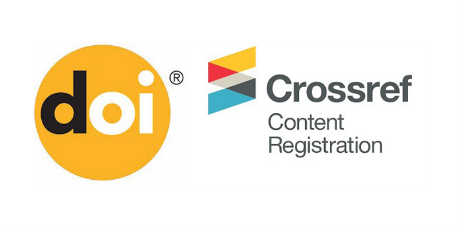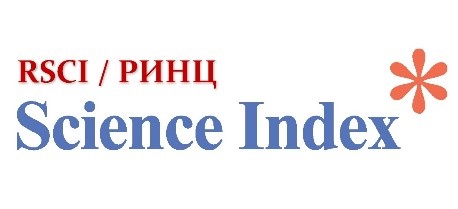Kazakh mathematical justice in school education is equal conditions for all in teaching textbooks and teachers
Views: 470 / PDF downloads: 288
DOI:
https://doi.org/10.32523/bulmathenu.2024/3.3Keywords:
Mathematical justice, Mathematics is a systematic science, school mathematical education, indisputable expertise, methods of direct application in the classroom, age abilities of schoolchildren, mathematical maturity, understanding of mathematics, synopsis–table of contents.Abstract
Equity in school mathematics education ideally means providing students with the opportunity to realize their potential through the provision of public responsibility for the means to achieve "Mathematical Maturity" in full and in detail. To gain an understanding of the nuances of this concept, it is enough to delve into just one topic of elementary school mathematics curriculum. Select an arbitrarily unit segment, build two segments with lengths of ordinary fractions with different denominators and make sure that it is impossible to compare them in length in numerical terms. Then, appreciate the remarkable ability of Mathematics, to provide a solution to what would otherwise appear to be an insoluble problem.
In the educational process, it is essential to differentiate between the state and the student. The first provides the opportunity to obtain knowledge, but is not to answer for the second. However, there must be moral and material motivation to obtain high-quality knowledge. In his teachings, wise Abay cautioned that the word from the educated though demanding, can illuminate the path to understanding. He urged to perceive the light and mystery that surrounds us. With his words "Aitshy-aytshyp zhalynar, Uqqysh zhansyp shabynar. Uqpay zhatyp zhalyǵar, uıqyly-oıaý boıkúıez", which translates as ‘mindless boredom, drowsiness’, he emphasised the importance of remaining alert and awake to the world around us. In the absence of boredom, sleepiness", as in the case of personal transformation of the individual and the principle of "you can lead a horse to water, but you cannot make it drink".
The concept of "Justice" is a multifaceted topic in the International Educational Space. It is the universal division between "Global North" and the "Global South", where the former has a stronger economy, infrastructure and technology, while the latter is characterized by less diverse economy, by poverty and inequality and a history of colonization by the countries of the Global North. These studies adopt from various points of views: sociological, economic, pedagogical, legal and political, as well as various professional approaches such as "Fair education from the standpoint of textbook quality" or "Development and implementation of programs that take into account the needs of different groups of students", "Evaluation of the effectiveness of pedagogical strategies aimed at eliminating educational inequality", and "The role of technology in providing access to education", etc.
This article is a presents a methodically structured National Program of the Republic of Kazakhstan, based on many years of experience and previously developed ideas, the result will be noticeable in a few years.
Every hour of delay makes one math lesson in all classes and for each student unschoolable, and damages the State in man-hours in the number of all students: "I, Nurlan Temirgaliyev, as a direct specialist, demand to declare a "State of emergency for the current state of mathematics and computer science of the Republic of Kazakhstan!" dated 04/13/2015 and, earlier, since 1974; "Save the future of a capable boy Imanbek" dated 01/31/2019; "Galiya Taugynbayeva alone can conduct an indisputable examination of all approved by the Ministry of Education and Science of the Republic of Kazakhstan in 13 calendar days textbooks on school mathematics" dated 07/12/2020; "The education and Science system of 30-year-old independent Kazakhstan turns a Kazakh, even if with the rudiments of Ramanujan's thinking, into a Mathematical Mowgli" dated 11/14/2021; "The academic year ended 2023-2024 for 5 million teachers and students was non-educational in all School mathematics, in Higher education in all specialties based on Mathematics, and this is in the presence of the National ITMandSC Program for elevation in Mathematics, Computer Science and AI-ML to World leading positions, which cannot be ordered with execution even for 10 annual budgets of the Republic of Kazakhstan" from 1.07.2024;Admission to teaching "First, complete theoretical training in the subject, only then the methodology, including understanding the accessibility or inaccessibility to assimilation by students and not the other way around" on the example of just one problematic topic "Comparison of ordinary fractions with different denominators of "Elementary school". To adopt in the form of a Law "Those who have made demonstrative scientific and methodological mistakes in textbooks and scientific publications, official reviews are included in the "Blacklist of a specialized institution" with lifelong excommunication from the sphere of activity of this department, there will be no losses from this, only recovery will occur, , never learned at the time never learned, cannot teach without knowledge itself" from 10/30/2024, numerous of the same earlier and later dates.
References
Образование, которое мы можем потерять // Сборник. – Москва: Московский государственный университет имени М.В.~Ломоносова; Институт компьютерных исследований. 2003. – 360 с.
Пока еще не слишком поздно. Доклад Национальной комиссии Соединенных Штатов Америки по преподаванию математики и естественных наук в 21-м веке. Перевод с английского. C.205-286 из [Сборник. – Москва: Московский государственный университет имени М.В. Ломоносова; Институт компьютерных исследований. 2003. – 360 с].
Равные возможности для всех детей. Проект программы реформ в области образования Президента Соединенных Штатов Америки Джорджа Буша. C. 287-324. Перевод с английского. C.287-322 из [Сборник. – Москва: Московский государственный университет имени М.В. Ломоносова; Институт компьютерных исследований. 2003. – 360 с].
Президент — о создании новой системы преподавания математики [электронный ресурс]. Газета "Газета.uz". URL: https://www.gazeta.uz/ru/2020/06/12/math/. Дата обращения: 29.06.2024.
«ОСОБЕННОСТИ НАЦИОНАЛЬНОЙ НАУКИ И ОБРАЗОВАНИЯ, ИЛИ КАЗАХСТАН В УСЛОВИЯХ МАССОВОЙ ОСТЕПЕНИЗАЦИИ И ДИПЛОМИЗАЦИИ [электронный вариант]. Лаборатория общих проблем образования и науки, Институт теоретической математики и научных вычислений (ИТМиНВ), Евразийский национальный университет имени Л.Н.Гумилева, Астана.
Морозова Е.А., Петраков И.С., Скворцов В.А., Международные математические олимпиады. - Москва: Провещение, 1976. – 289 с.
Темiрғалиев Н., Әубакiр Б., Баилов Е., Потапов М.К., Шерниязов К. Алгебра және анализ бастамалары, X-XI кластар. -Алматы: "Жазушы", 2002. -382 б.
Темиргалиев Н., Аубакир Б., Баилов Е., Потапов М.К., Шерниязов К. Алгебра и начала анализа, для X-XI классов. Алматы:"Жазушы", 2002. -423 с.
Темірғалиев Н., «Математикалық анализ», 1 том, Алматы: Мектеп, 1987 – 288 б.
Темірғалиев Н., «Математикалық анализ» , 2 том, Алматы: Ана тілі, 1991 – 280 б.
Темірғалиев Н., «Математикалық анализ» , 3 том, Алматы: Білім, 1997 – 450 б.
Темірғалиев Н., «Математикалық анализ» (өңделген және толықтырылған екінші басылым) – Астана, 2024 – 2000 б.
Темиргалиев Н. Предисловие Главного редактора журнала «Вестник ЕНУ. Серия Математика. Информатика. Механика» о целях издания и путях их реализации // Вестник Евразийского национального университета имени Л.Н. Гумилева, Серия Математика. Информатика. Механика. – 2018. - №1(122), С.8-69.
Математика: МЕТОДОЛОГИЯ и МЕТОДИКА. Казахстанская модель образования и науки. Материалы Института теоретической математики и научных вычислений ЕНУ им. Л.Н.Гумилева: III. Лаборатория математического образования в бакалавриате, магистратуре и Ph.D докторантуре, IV. Лаборатория по школьной математике, V. Лаборатория общих проблем образования и науки в РК (Электронное продолжающееся издание), Астана, 2024, С.1- 2245.
Тауғынбаева Ғ.Е., Жұбанышева А.Ж. Теория мен есептерден тұратын «Бір айнымалылы сандық функция шегі» атты негізгі тақырып бойынша кешенді дамыту. – Астана: "Булатов А.Ж."ЖК, 2024, 135 б.
Жұбанышева А.Ж., Тауғынбаева Ғ.Е., Дулатова А. Комплексная разработка базовой темы «Предел числовой функции одной переменной» в теории и задачах: учебное пособие. – Астана: "Булатов А.Ж."ЖК, 2024, 130 б.
Темірғалиев Н. Ақырлы нәтижелі элементар ықтималдықтар теориясы: оқулық. -Астана: Л.Н. Гумилев атындағы Еуразия ұлттық университетi, 2024. -160 бет.
Темиргалиев Н. Элементарная теория вероятностей с конечным числом исходов: учебник -Астана: Евразийский национальный университет имени Л.Н.Гумилева, 2024. - 160 с.
Тауғынбаева Ғ.Е., Жұбанышева А.Ж. Ықтималдықтар теориясы бойынша есептер жинағы: оқулық. -Астана: "Булатов А.Ж."ЖК, 2023. – 214 б.
Жұбанышева А.Ж., Тауғынбаева Ғ.Е. Ықтималдықтар теориясы бойынша есептер жинағы: Электронды оқулық. -Астана. - 2023.
Темиргалиев Н., Жайнибекова М., Воказе К., О некоторых «понятных» понятиях школьной математики // Вестник Евразийского национального университета имени Л.Н. Гумилева, Гуманитарные науки. – 2011. - №1(80), С.33-38.
Темиргалиев Н. , Жайнибекова М.А., Воказе К.Е., Анализ «понятных» понятий школьной математики // Математика в школе. - 2014 - №1, С.57-59.
Проскуряков И.В. Числа и многочлены. 2-е изд. – М.: Просвещение, 1965. –284 с.
Киселев А.П. Алгебра. Ч.1.- М.: ФИЗМАТЛИТ.2006.-152с.
Темиргалиев Н. Как быть с переместительным и сочетательными законами в средней школе?// Материалы Международной научной конференции, посвященной 105-летию академика С.М.Никольского «Современные проблемы анализа и преполавания математики», Москва, 2010, С.122-123.
Темиргалиев Н. Принципы создания и проведения экспертизы учебников по математике// Вестник Евразийского национального университета имени Л.Н. Гумилева, 2009, №5 (72), С. 35-43.
Башмаков М. И. Алгебра и начала анализа, 10-11 классы. М., «Просвещение», 1992.- 351 с.
Киселев А.П. Алгебра: Часть первая; Учебник для 8-10 классов средней школы. –М.: ГУПИ МП РСФСР, 1963.-232 с.
Математическая энциклопедия. Том 5. М.: Сов. энциклопедия, 1977.- 1052с.
Виленкин Н.Я. и др. Математика. 5 класс: учеб. для общеобразоват. учреждений. – 24-е изд., испр. – М.:Мнемозина, 2008. -280 с.
Математика: Энциклопедия. М.: Большая Российская энциклопедия, 2003.
Темиргалиев Н. Научный, научно-методический и организационный отчет «Институт теоретической математики и научных вычислений (ИТМиНВ) Евразийского национального университета имени Л.Н.Гумилева в 2019 году (Часть II)». Вестник Евразийского национального университета имени Л.Н. Гумилева. Серия Математика. Компьютерные науки. Механика. 2020. T. 132. No 3. С.31–69.
Джумакаева Г.Т., Темиргалиев Н. Метод анализа возрастных способностей учащихся к усвоению учебного материала //Вестник Евразийского национального университета имени Л.Н. Гумилева, №1 (80), 2011, С.39-50.
Жубанышева А.Ж., Каримова Д. Мектеп оқушыларының жас ерекшеліктеріне байланысты мектеп бағдарламасындағы ықтималдықтар теориясын игерудің эмпирикалық әдісін жүзеге асыру, Наука и образование, 2015.
Темиргалиев Н. Теория вероятностей. Электронное издание. Институт теоретической математики и научных вычислений, Евразийский национальный университет имени Л.Н. Гумилева. Астана, 2012.
Vithal R., Brodie K., Subbaye R. Equity in mathematics education // ZDM – Mathematics Education, 2024). V.56, P.153-164. https://doi.org/10.1007/s11858-023-01504-4
Qiu X. L., Leung, F. K. Equity in mathematics education in Hong Kong: Evidence from TIMSS 2011 to 2019. Large Scale Assessments in Education, 2022. V.10(1), P.1–21. https://doi.org/ 10.1186/s40536-022-00121-z
Nortvedt G. A. Policy impact of PISA on mathematics education: The case of Norway // European Journal of Psychology of Education, 2018. V.33(3), P.427–444. https://doi.org/10.1007/s10212-018- 0378-9.
Boaler J. Mathematical Mindsets: Unleashing Students' Potential through Creative Math // Journal of Mathematics Education, 2016.
Gutiérrez, R. (2012). Context matters: How should we conceptualize equity in mathematics education? In B. Herbel-Eisenmann, J. Choppin, D. Wagner, and D. Pimm (Eds.), Equity in Discourse for Mathematics Education: Theories, Practices and Policies, 2012. P.17–33. Springer. https://doi.org/10.1007/978-94-007-2813-4
Ladson-Billings G. Toward a Theory of Culturally Relevant Pedagogy // American Educational Research Journal, 1995.
Leyva L.A. Unpacking the Male Superiority Myth in Mathematics Education // Journal of Urban Mathematics Education, 2017.
Kitchen R. S., and Berk, S. Educational Technology and Equity in Mathematics Education // Educational Technology Research and Development, 2016.
Schleicher A. Equity in Education: Breaking Down Barriers to Social Mobility // OECD Publishing, 2018.
Skovsmose O. Critical Mathematics Education // Philosophy of Mathematics Education Journal, 2011











